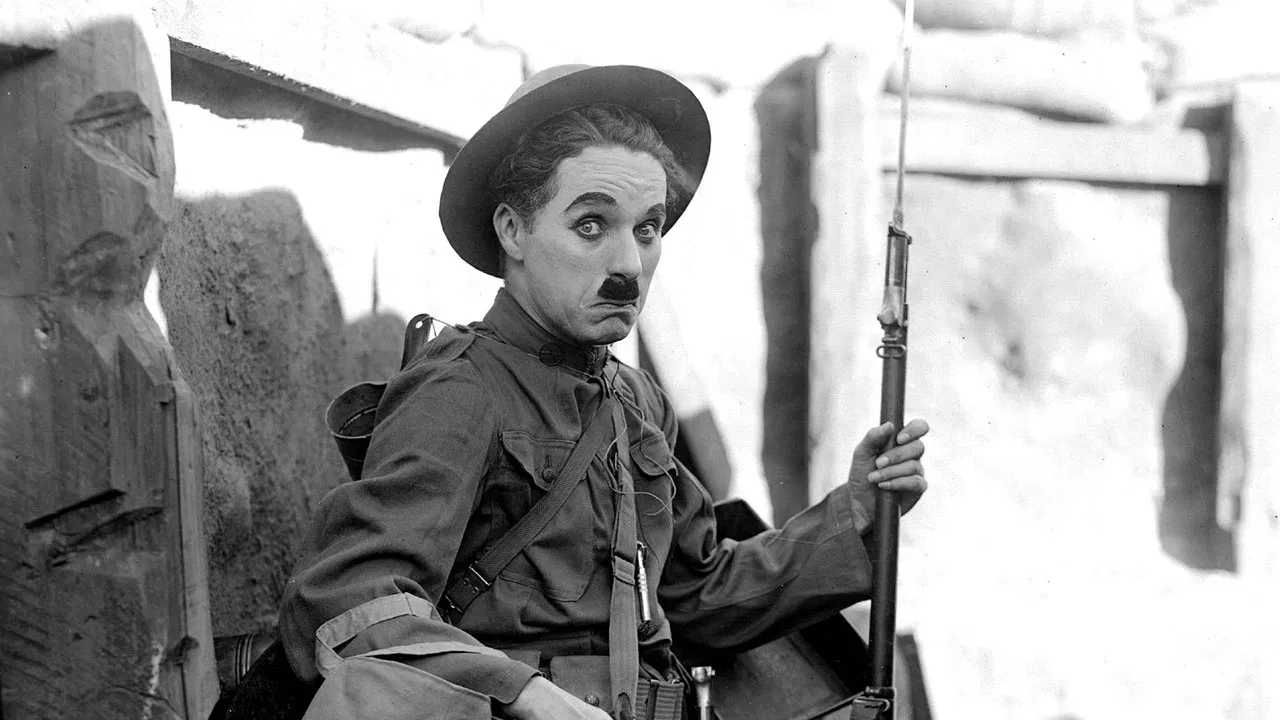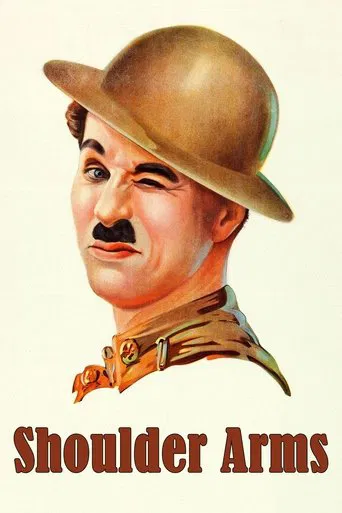

"Shoulder Arms" is an American silent (don't be fooled by the music) movie, black-and-white obviously and stars Charlie Chaplin as writer, director and lead actor. He cast his regular Edna Purviance as lead lady and half-brother Syd is in here again as well. It is not among his shorter works at 45 minutes, but also not among his longest films, not even close. In my opinion, the same is true when it comes to quality. Not one of Chaplin's best, not one of his worst. The year is 1918, so this one will soon have its 100th anniversary. It was made at the end of World War I and Germany are already the enemies in this film. Yep, Chaplin made (like the Stooges) a couple anti-German propaganda films, and here his target are still the enemy forces from World War I, later on from World War II when he went more into full features. I believe the action in "Shoulder Arms" is fairly uninteresting compared to his finest pieces and the emotion is also not really effective. The comedy is okay I guess. The most interesting aspect, however, are the political references. If anything makes these 45 minutes worth a watch, then it is these. As a whole, still fairly underwhelming and I do not recommend it.
... View MoreChaplin is a doughboy in his final film of 1918, a doughboy who can not seem to get the marching down straight. He spends time "over there" in World War One trenches. Several gags stand out: Limburger cheese as a makeshift grenade for one. The cramped quarters of the barracks in the trenches and when Chaplin and his mates are washed out of their bunks by flooding are highlights. Chaplin ends up capturing several German soldiers single-handed, and he spanks the German commander for refusing a cigarette. When asked how he did it, Chaplin replies that he surrounded them. Chaplin hides behind enemy lines as a tree of all things, and those scenes are very very funny. He escapes to a bombed house where he meets up with a French girl played by Edna Purviance. He's tracked down by German soldiers, escapes from them again, and Purviance is arrested for assisting him. Chaplin is able to pull a fast one by bopping a soldier and using the soldier's uniform. He ends up saving Purviance of course and capturing the Kaiser in the process. Along the way, Chaplin employs some sight gags and slapstick in turning back the German soldiers. With this film, Chaplin explored the location possibilities in filming while maintaining the audience's attention for closer to feature length time, something his contract with the Mutual Film Corporation disallowed him. The film also allowed him to poke fun at the enemy, something he would again do to greater effect in The Great Dictator. *** of 4 stars.
... View MoreIn one of the best of Charlie Chaplin's lengthier short films, he places the Little Fellow in the trenches of WWI, where he brings his intolerable politeness and endless patience to the drudgery of trench life, where troops lived for months at a time before finally going over the top to overtake the enemy, and usually to their deaths. It takes someone of Chaplin's skill as a comedian to make something as dreary as trench warfare into such a brilliant comedy, but the irony that he uses in the film makes even the most uncomfortable conditions highly amusing.Like all of the best of Chaplin's films, short films and otherwise, this one is packed with brilliant and memorable scenes, such as the scene where he marks off kills with a piece of chalk on a board in the trench, erasing one when he gets his helmet shot off, the scene where he and his fellow soldiers are sleeping underwater, the opening of the beer bottle and lighting of the cigarette, and of course, the overtaking of the enemy. All of these scenes are show-stoppers, reminiscent of the most wonderful Chaplin scenes. This one should not be missed!
... View MoreIn reaction to the dullness of the films of actual combat in that time, the wartime public increasingly turned to humor as escape from monotony and anxiety Charlie Chaplin feared that his great "Shoulder Arms" would offend people, but it became his greatest hit In it, Charlie, by luck, courage, and devilish ingenuity wins the war singlehanded and brings a captive Kaiser in triumph to London The chief difference between this hilarious burlesque and some of the serious war dramas was that in Charlie's case it all turned out to be a dream
... View More